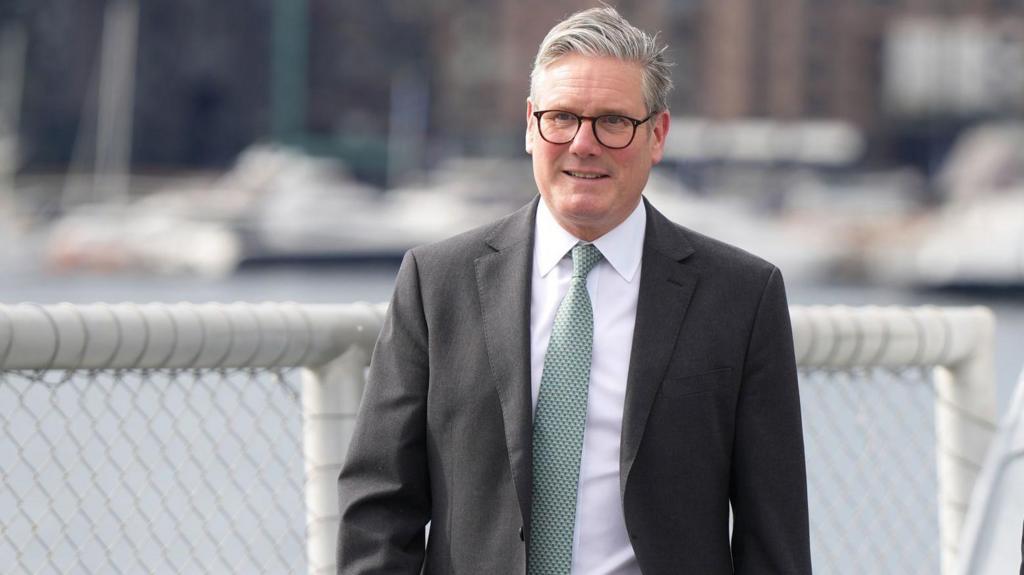Following a recent agreement with the United States, the Prime Minister confirmed ongoing discussions regarding digital services are underway.
The UK’s Digital Services Tax (DST), a 2% levy generating approximately £800 million annually, primarily from US tech companies, was widely considered a key element in trade negotiations with the US. Previous reports suggested its inclusion in broader trade talks.
The government declared on Thursday that the DST remains unaffected by the newly signed US-UK tariff reduction deal, which addresses President Trump’s tariffs on cars and metals.
When pressed for assurances regarding the DST’s future, Sir Keir Starmer stated that “ongoing discussions” encompass digital services and other aspects of the agreement.
Speaking aboard HMS St Albans during a Norwegian visit, Sir Keir highlighted the deal’s primary focus on steel, aluminum, and automotive tariffs. He emphasized ongoing discussions regarding digital services but stressed the immediate protection afforded to previously vulnerable sectors.
While providing relief from Trump-era tariffs, the government continues pursuing a broader UK-US trade agreement. A key point of contention remains the DST, impacting large multinational enterprises operating social media platforms, search engines, and online marketplaces within the UK.
This 2% tax applies to companies with global revenues exceeding £500 million and UK revenues exceeding £25 million, affecting tech giants like Amazon and Meta. Introduced in 2020 by the previous Conservative government, the DST has faced opposition from President Trump, who viewed it as unfairly targeting American businesses.
Chancellor Rachel Reeves previously underscored the need to balance negotiations with the US, stating the importance of ensuring UK-based companies pay their fair share of taxes while preserving free and open trade.
Potential DST alterations have drawn criticism from the Liberal Democrats, who warned Labour against compromising its principles. However, Trade Minister Douglas Alexander assured Parliament that the government carefully considered concerns about online harm protections during negotiations, prioritizing the UK’s national interest.
Commenting on the deal, Conservative leader Kemi Badenoch described it as underwhelming and expressed concern that it might hinder the prospect of a comprehensive free trade agreement.
Subscribe to our Politics Essential newsletter for in-depth political analysis, UK-wide insights, and timely updates delivered daily to your inbox.

